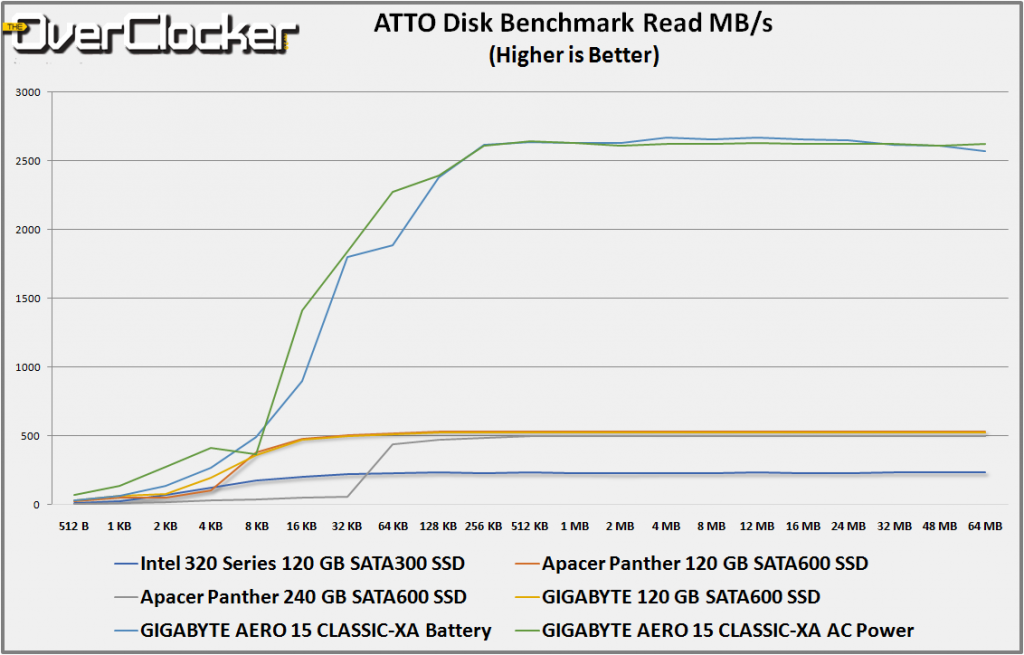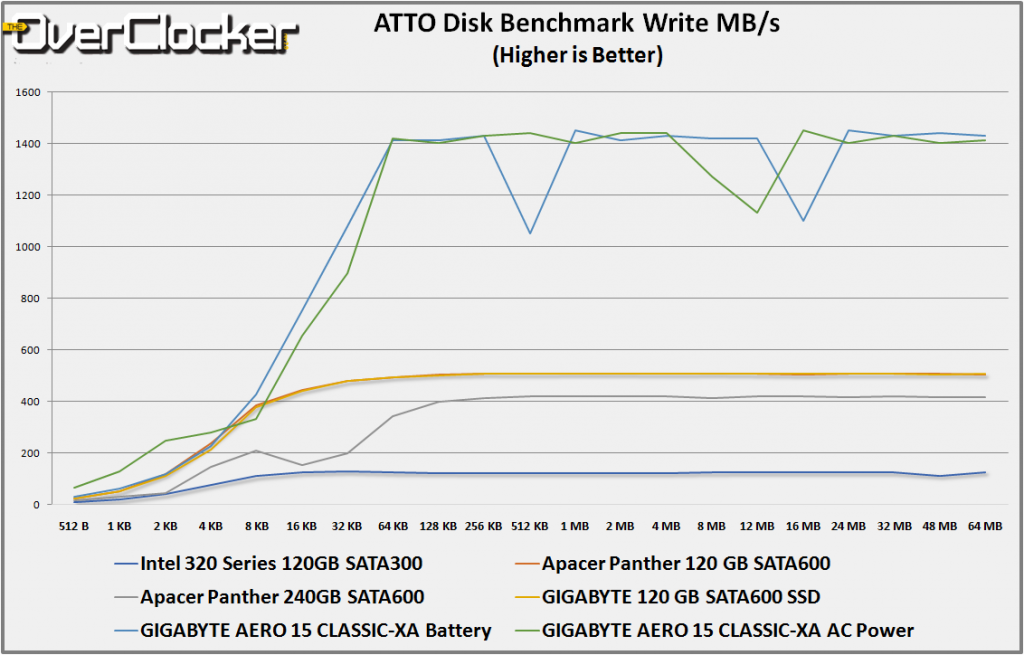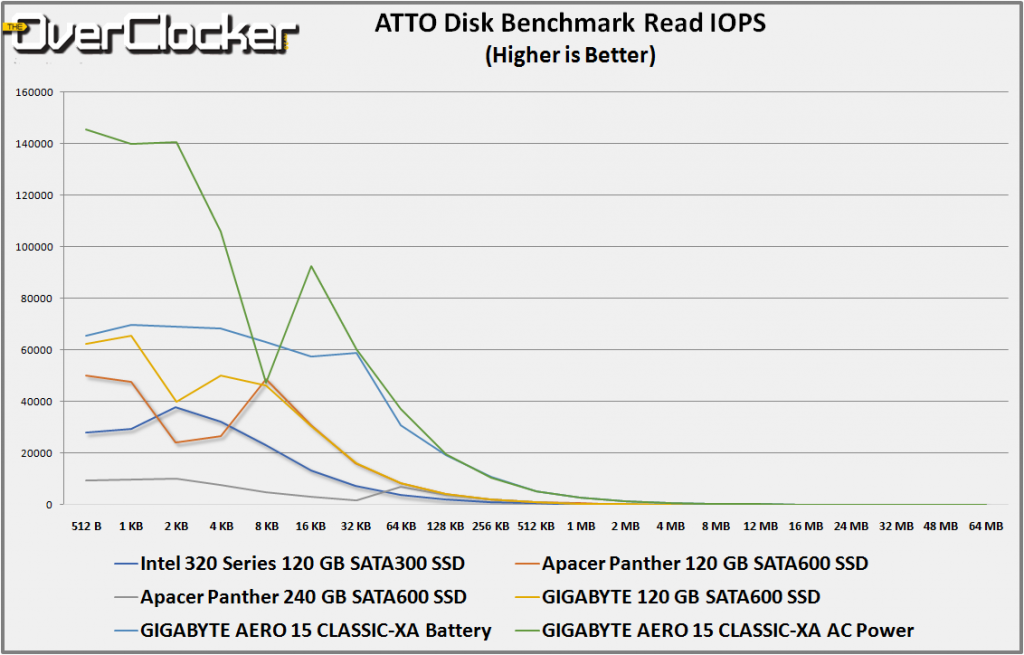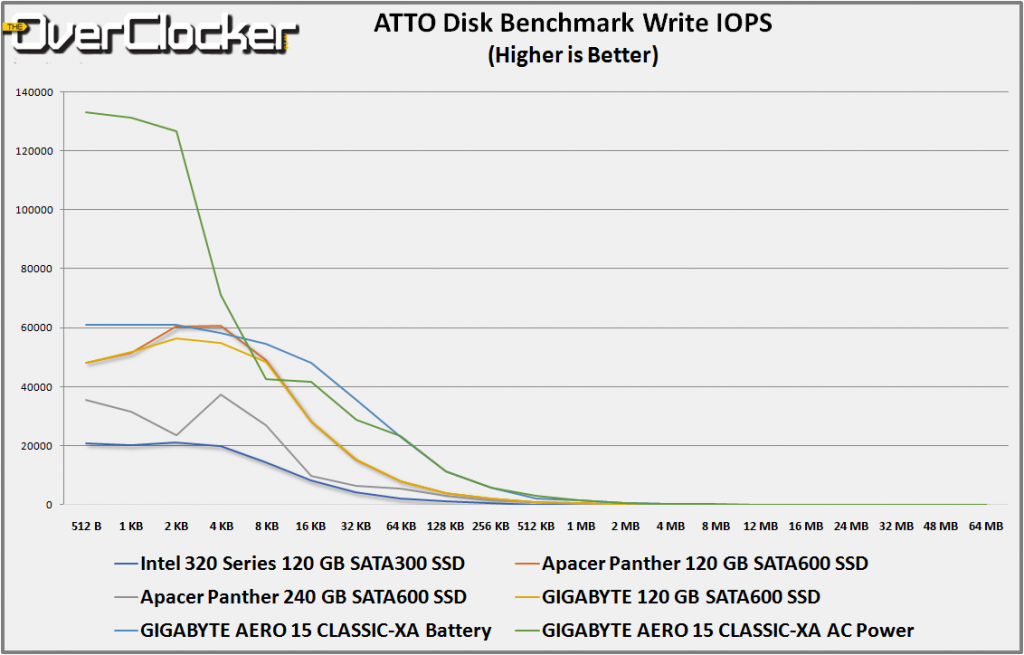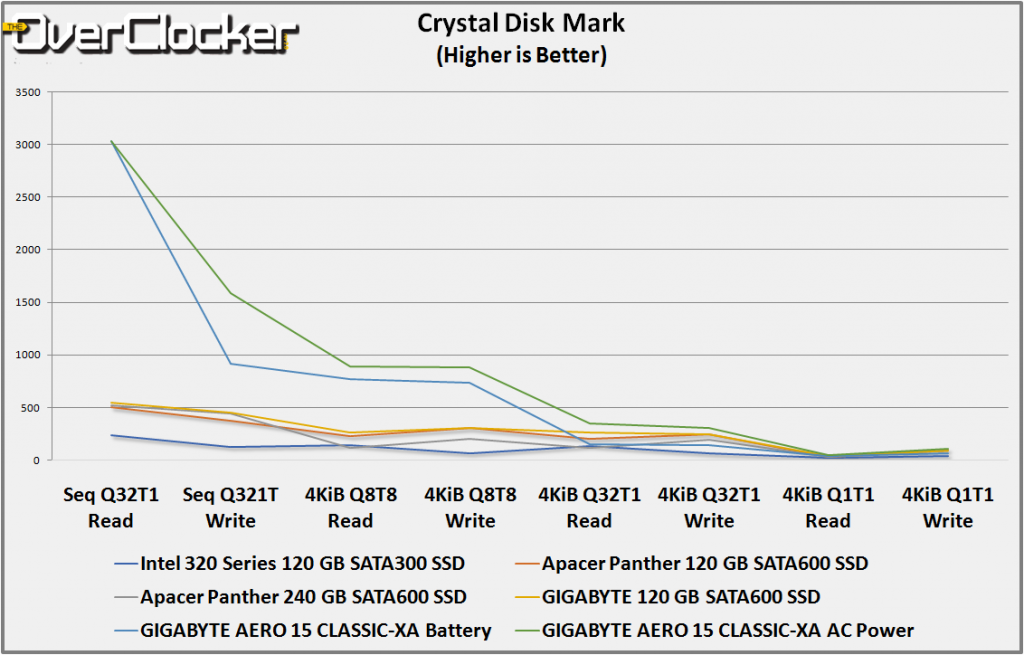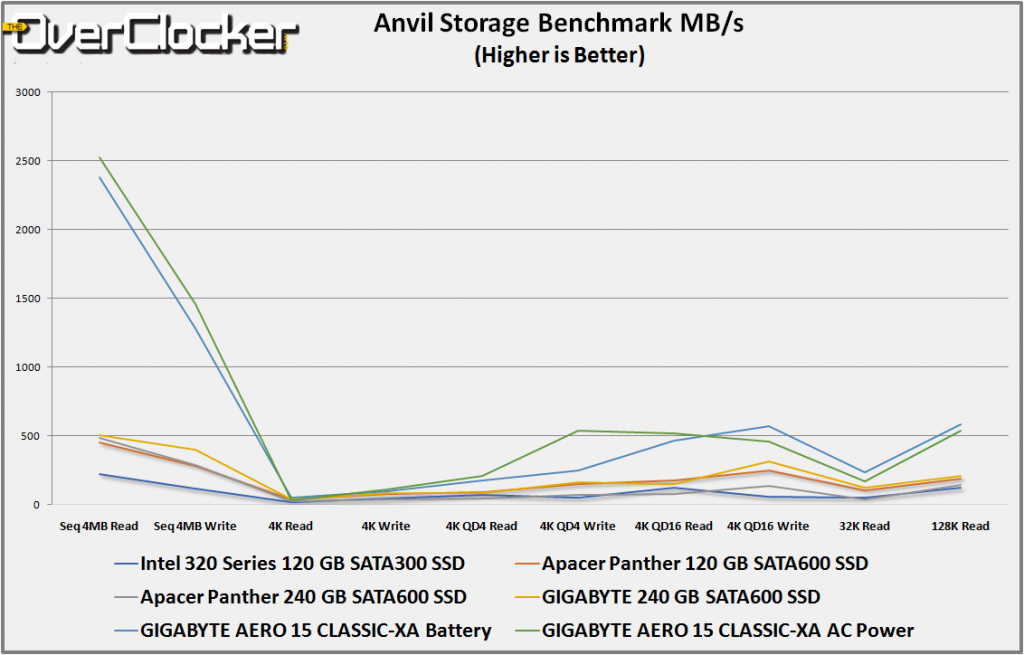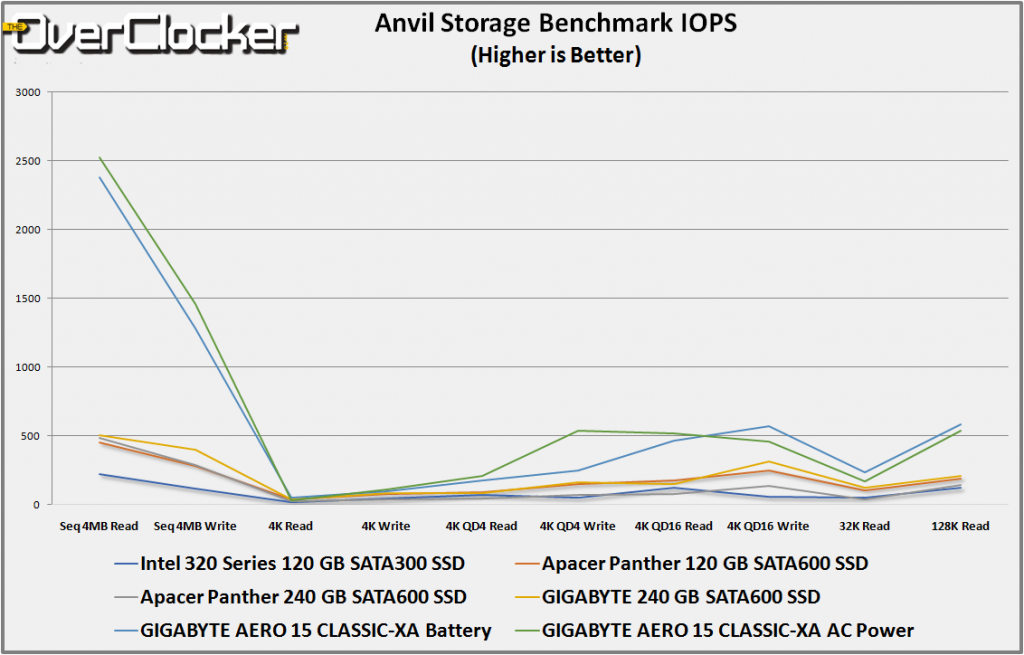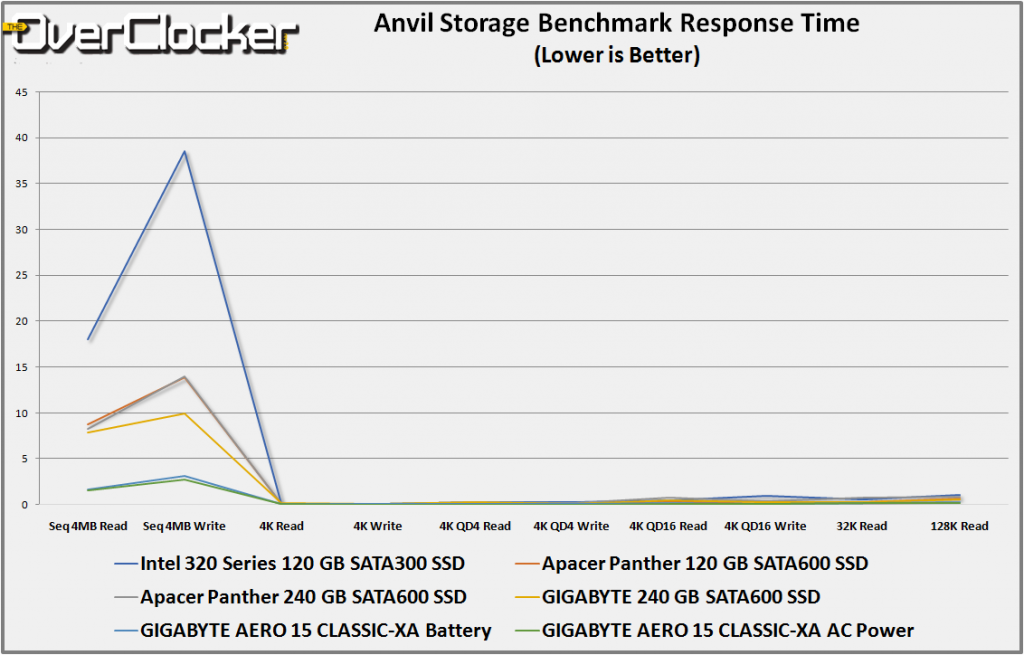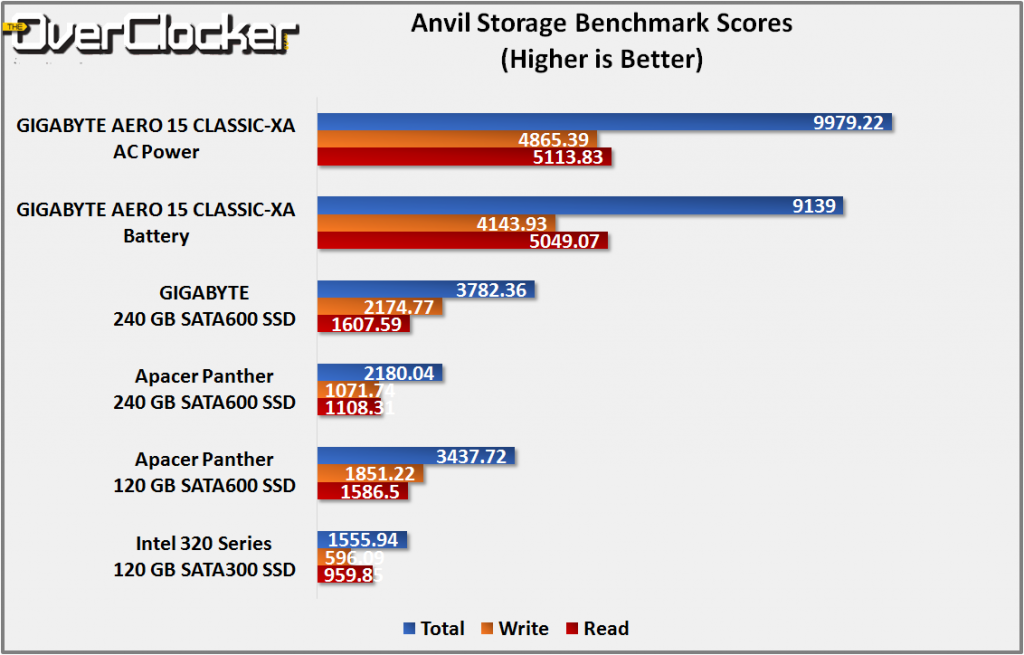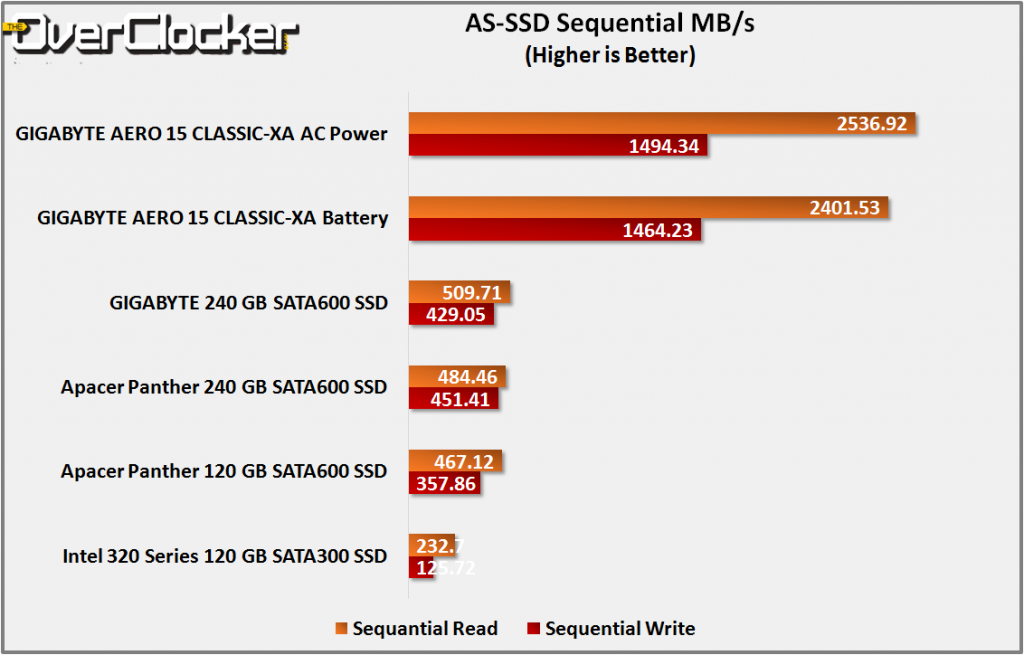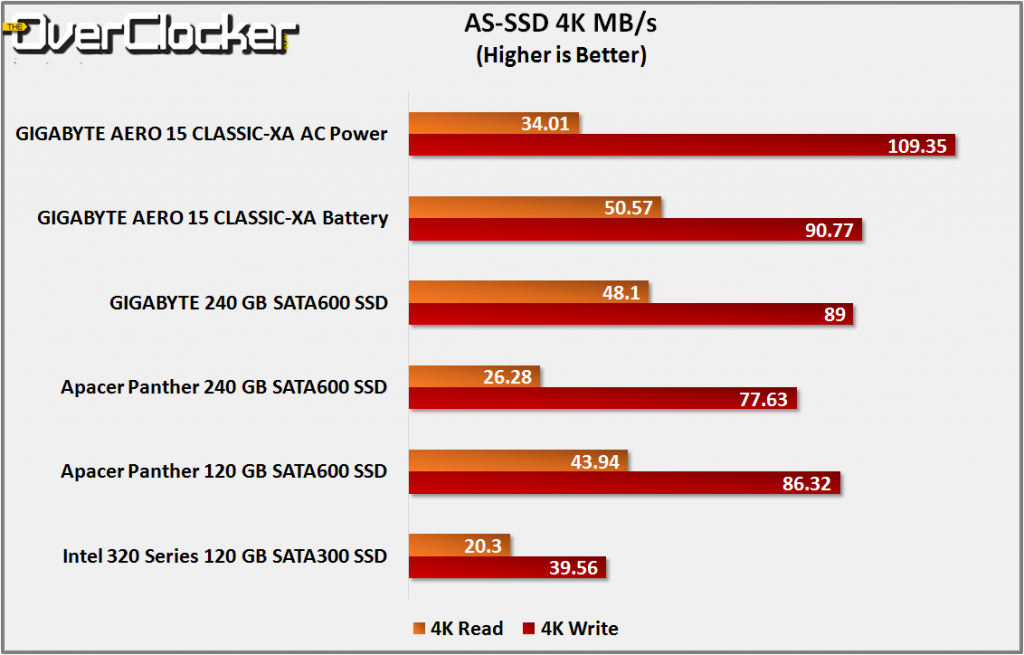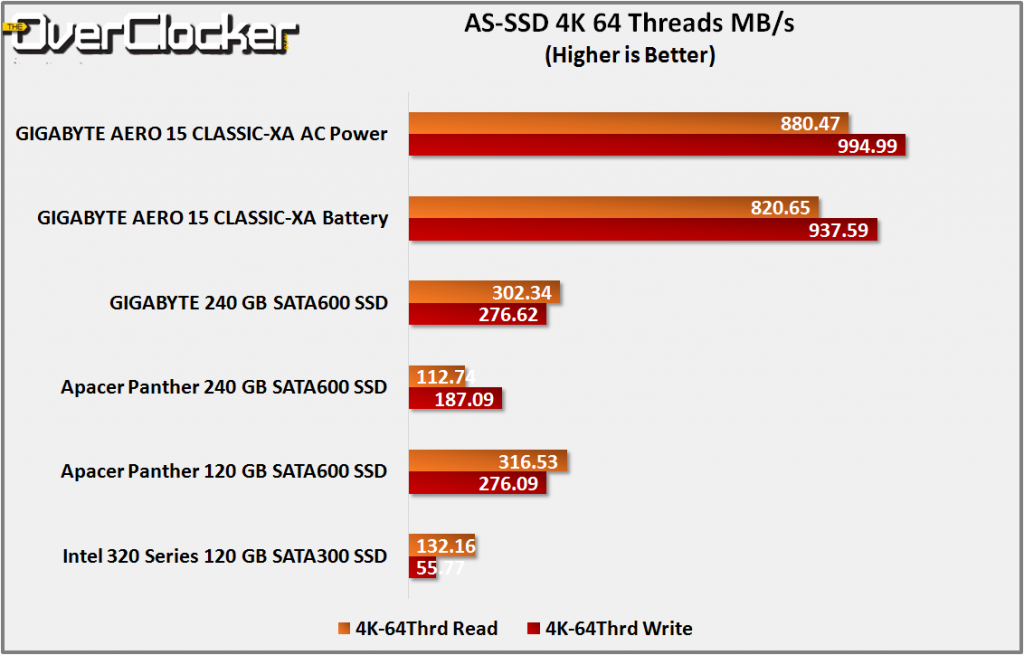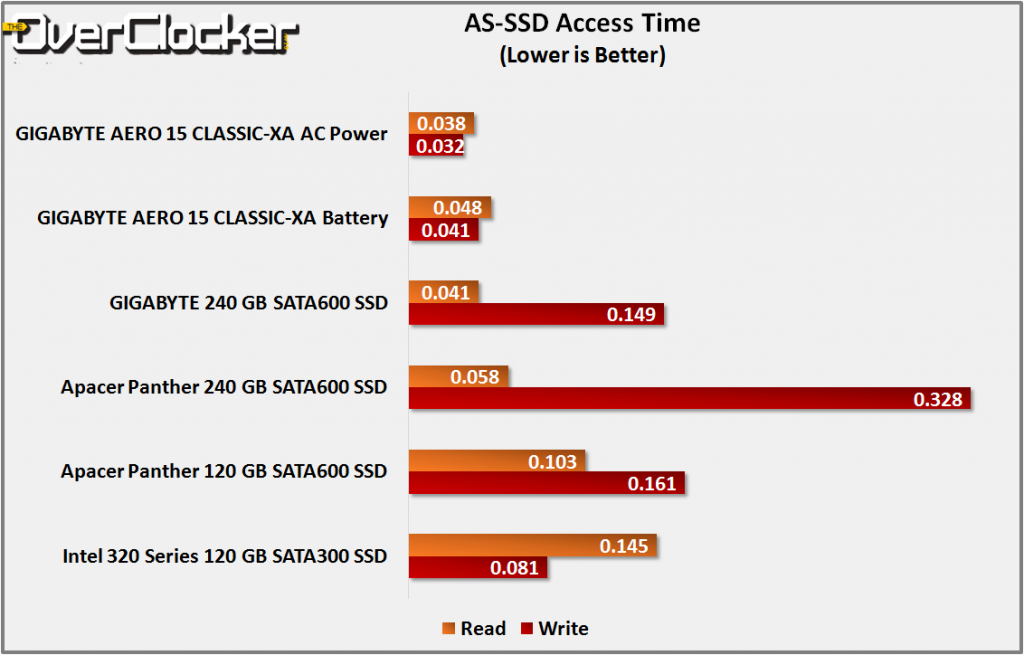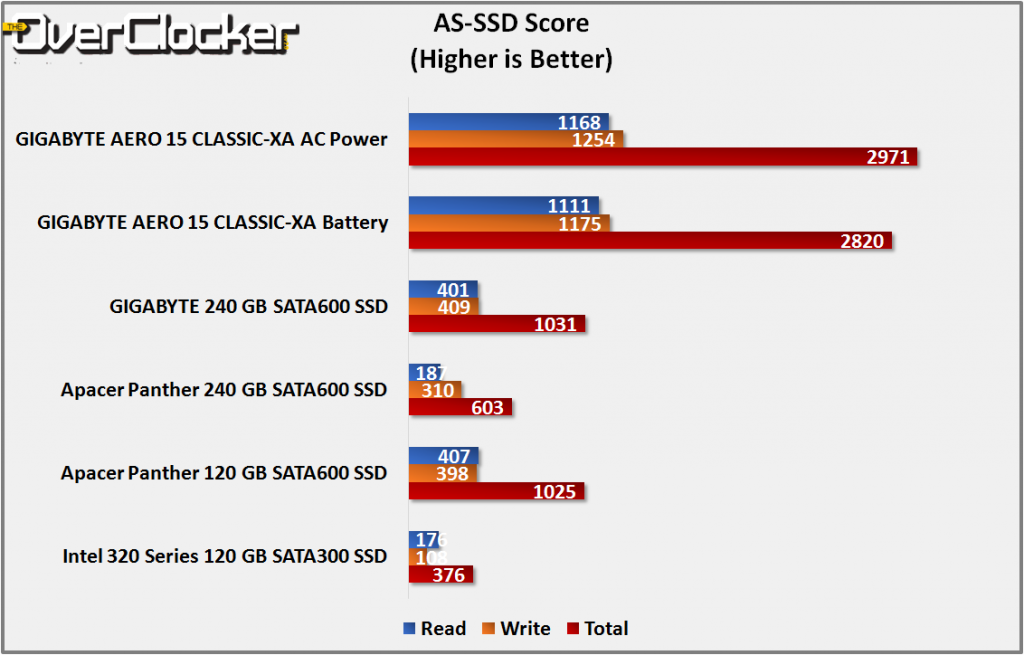GIGABYTE AERO 15 CLASSIC-XA Review
Storage
Storage performance on the GIGABYTE AERO 15 CLASSIC-XA is one of its strongest points thanks to the Intel 760p series SSD. At 512 GB it isn’t the largest available, and with many AAA titles weighing in at 50 GB or more you’ll only have half a dozen or so games installed at a time. As most people focus on a handful of games at a time this shouldn’t be too much of an issue, but it is still an inconvenience having to shuffles games around. This is even more of an issue if you plan to store media on the laptop, and a 2 TB secondary drive would have been advantageous. The flip side is that a mechanical drive would have had a negative effect on battery life, so it’s a sacrifice that was made with forethought.
ATTO Disk Benchmark
Off the bat we see brilliant performance with ATTO Disk Benchmark. Here we saw the drive hitting in excess of 1 GB/s read and write speeds as early as 16 KB and 64 KB block sizes respectively. Read speed eventually peaked at 2.62 GB/s from 256 KB block sizes. Meanwhile, IOPS peaked as high as 145,000 for reads and 133,000 for writes.
Crystal Disk Mark
Moving onto Crystal Disk Mark, sequential read speeds reached a hair under 3 GB/s, and extremely high speeds were reached under all tests other than 4 KB with a queue depth and thread count of one. However, such speeds were not poor as it is an extremely stressful test. Speeds were still more than acceptable, and given the unlikely scenario the slowdowns will probably go unnoticed in the real world.
Anvil’s Storage Utilities
Anvil’s Storage Utilities was next, where the laptop scored one of the highest results we’ve seen from a single drive. Astonishingly, the drive scored a total score of a hair under 10,000 points. Response times were often in the tens of microseconds, showing the brute force of the Intel controller. It would have been nice to see 10,000 points just for the sake of it, but rerunning the test multiple times resulted in consistent scores a fraction under the target score.
AS-SSD
Lastly, we have AS-SSD which have an overall score of 2,971 points – again, an extremely respectable score. Here again we see access times in the tens of microseconds, and sequential speeds hitting over 2,500 MB/s and almost 1,500 MB/s for reads and writes respectively.
In all of the above tests, running on battery power had a negligible effect on performance. On average, the performance hit between AC power using the Smartmanager High performance plan and battery power using the Smartmanager Balanced plan was around 5 to 10 %.

